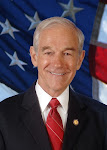By Douglas Kohn
Kohn@Fordham.edu
Ever since the founding of the nation, people have touted the everlasting idea of American exceptionalism. Even though every country is unique in its own way, Americans liked to see their place as exceptionally exceptional, especially when compared with other capitalist, democratic nations.
This notion was further reinforced by an essay written on the 100th anniversary of the publication of the Communist Manifesto called ‘On Marxism and American Exceptionalism.’ It was written by two American communists. Former Neoconservative Francis Fukuyama declared an end to history after the Cold War, and Samuel Huntington declared the Clash of Civilizations. The new world we are entering is looking increasingly like the latter.
Now, after the Cold War has ended, the world is on the precipice of the return of the 19th Century. America will no longer be one of two poles during the superpower years of the Cold War or the only pole during the hyperpower years of the end of the 20th Century and the Beginning of the 21st Century. The world is going to have many poles, with America being of the foremost of several great powers, with political power increasingly distributed by population, rather than technological or economic dominance.
The primary powers in this new world will be America, China, India, Brazil and possibly some form of European political entity. I am intentionally leaving Russia out of this equation as I believe that country to be in real decline, even if they will be able to cause trouble in many ways in the future. The new world we are living in will look increasingly like the map of Europe in the late 19th Century, with many great and powerful nations uneasily trying to maintain a precarious balance of power.
Every single time in history that has had the doctrine of a balance of power has led to war. This was most appropriately played out in Europe after the 30 Years War, after the War of the Spanish Succession, again after the Napoleonic Wars, after the Rise of Germany, and lastly after World War I. In his famous Sinews of Peace speech at Westminster College, Winston Churchill declared that after the Second World War the doctrine of a balance of power was unsound and in a new age ‘We cannot afford to offer temptations to a trial of strength.’ This may have been the world that was taking shape in the days of the ideological conflict between the Free World and Communism, but it is no longer the world we live in.
Somehow, a new balance is going to have to be put in place, and this is why America’s much longed for isolationism may not come to pass. It is a desirable place to be, where you do not have to depend on the rest of the world for sustenance, but the world is much smaller and America will have to find some place in it to preserve its interests and keep any possible competition for geopolitical power as peaceful as possible.
Subscribe to:
Post Comments (Atom)






2 comments:
I feel like you're seeing big black rain clouds where there aren't any. Or maybe you're conjuring them up. Let's just let history keep on rolling and not start the fear-mongering until we have to, k?
The writing is on the wall. Right now the world is more peaceful than at any time during the 20th Century. However, if this is something to measure by, the 20th Century was far more violent than any century since the 17th. Anyone with a real sense of history can see what is happening here. This is not to say there will be a major war, but there will be competition for resources, especially oil and water.
Post a Comment